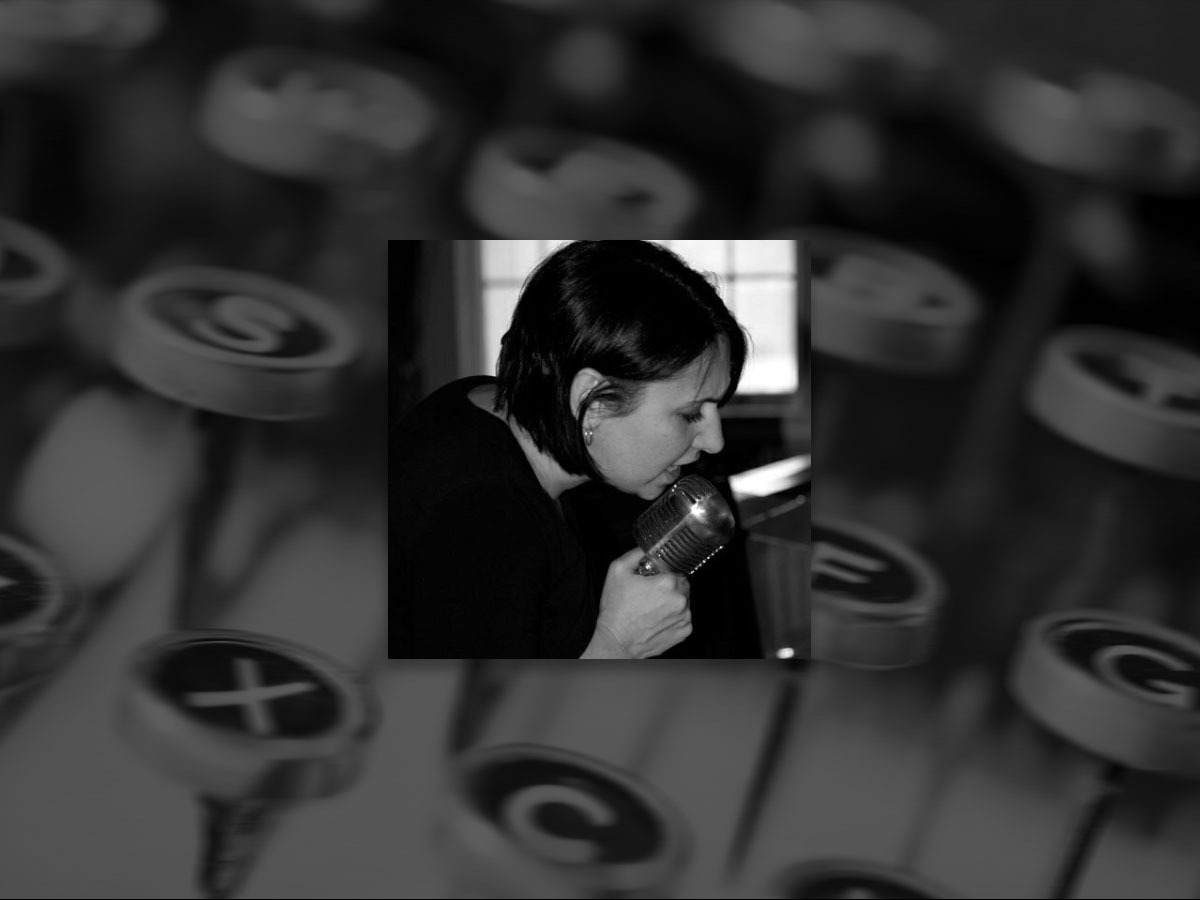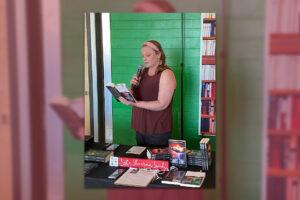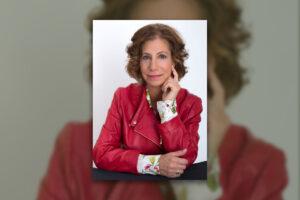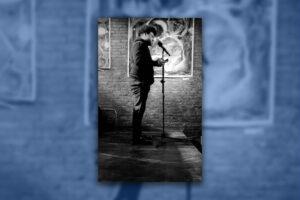By Karlie Flood
On November 13th, I had the absolute pleasure of interviewing a central figure in Albany’s poetry scene, Mary Panza, the Vice President of Albany Poets and an Editor of Up the River Magazine. Albany Poets seeks to“increase awareness and activity of the art of poetry and spoken word in the Albany, NY area.” Panza has worked tirelessly to ensure all poets and writers have a place in Albany. She has been attending open mics here since 1988 and hosts an open mic on the last Monday of each month at McGeary’s in downtown Albany. Her blog, Housewife Tuesday, is published by Albany Poets when she has something to say (can range from bi-weekly to monthly).
KF: Tell me about Albany Poets and your goal for the organization.
MP: I came to work with Albany Poets in 2004 to bring more shows and open mics to the area; to put poetry out there a little more.
MP: I started out in 1988 with the local poetry scene, so I already knew some folks. It wasn’t that hard to find venues with owners who were very pro-artist to get stuff going.
KF: Have you always lived in Albany?
MP: I’m from South Troy.
KF: What made you focus on Albany versus Troy?
MP: There wasn’t anything really going on in 1988. And QE2, which was the punk-club at the time, was doing an open mic at the end of each month, so I just came here.
KF: What has been your favorite part of working with the community, or what has been the most rewarding?
MP: New poets. Another one of my favorite things is giving new artists their first feature, which I do at my open mic at McGeary’s.
KF: Is the open mic at McGeary’s strictly poetry?
MP: We’ve had some different things over the years, but it’s mostly poetry and short prose. We have a lot of regulars, but we also have a lot of newcomers. Some people come on their vacations, or during the summer or winter only. It’s diverse.
KF: How long have you been doing that for?
MP: 13 years. 14 years in January.
KF: And you are a poet, right?
MP: I am.
KF: When did you know that you were a poet?
MP: I still don’t know.
KF: When did you start writing?
MP: When I was a child, I would write soap operas, because that’s what I knew. I would sit with my Nana Panza, and she would watch the Edge of Night. I’ve always watched soap operas my whole life. I still do. But that was kind of the first stuff I wrote, and I would draw little pictures.
KF: That’s so cute!
MP: It was dopey, but that’s what I did as a kid because Nana liked them, and I wanted something in common with Nana.
KF: Have you written a soap opera since?
MP: No. I have lived enough soap operas in my life.
KF: Do you write anything besides poetry?
MP: I write the Housewife Tuesday blog. It’s supposed to be every other week, but if I don’t have anything to say—if I’m not interested, how am I going to make anyone else interested? So, I’ve been taking longer breaks. Plus, I have a 12-year-old. Kids are a time-suck.
KF: Especially at 12.
MP: Yeah. She keeps me busy.
KF: What’s your favorite thing about Albany?
MP: My house. Being inside of my house.
KF: Do you enjoy working for the community?
MP: I do. That’s the best part. My friend, Thom (President of Albany Poets), we always say it’s the best full-time job that we never get paid for. The first few years of Albany Poets, Thom and I were out every single night in the community, either brainstorming, or at events. We went to everything. We did everything. And I think that’s what you have to do. Before I had my daughter—I didn’t have my daughter until I was 37—so from the time I was 18 until the time I gave birth, basically, I would go to everything. There was very little that I didn’t go to. It’s where my friends were. And I wasn’t very nice. I only started being nice since menopause, and that was about three or four years ago—that’s a hormonal thing—and because I’m not competitive anymore. When you’re young and someone prettier comes in the room, or someone writes a better poem than you do—which happens a lot—there’s always someone else writing the poem you want. Before I was very competitive and nasty, and now I’m like “Oh my God, that’s great, somebody said what I was thinking.” And I think if you start with that attitude, you’ll go far.
KF: So, do you think it’s just age?
MP: I think you mellow with age. The sooner you get over yourself, the better you are. The sooner you stop being the poetry cliché, the better off you are.
KF: That’s one of those things that seem easy to do on paper but isn’t at all.
MP: To get over one’s ego? It’s the hardest thing you’ll ever have to do. I would’ve still been that asshole had I not had my daughter. I’ve only had a girl, so I can’t compare it to having a little boy, but they tell you the truth almost constantly: that you’re uncool, and that will come back and bite you in the ass.
KF: That will really bring you back down to Earth.
MP: It will really take the wind out of your sails. Especially with the internet! It’s a bigger world, in a lot of ways, because you’re uncool now on so many levels. I’m uncool because I have a Facebook and that’s for old people. I’m uncool because I don’t really do much on Instagram. I’ll say to my daughter; “How do you get that puppy face?” And she’ll say, “it’s Snapchat and you’re not getting it,” with an eyeroll. My daughter started rolling her eyes at me at age two. Keep karma in mind when you’re nasty to somebody. Karma is real. But now I enjoy poetry more. I enjoyed it before but now it’s different.
KF: Why do you think that is?
MP: Because I was a jerk. And now I’m a jerk, but maybe I’m a jerk for the right reasons. I wouldn’t go as far as to saint myself because I’m far from that, but I can enjoy it because I’m never going to be famous. I’m never going to be rich. I don’t have a degree, I have an associates. I’m not an academic. And I don’t really care if I ever get published again. I’m kind of a publishing pariah: nobody will publish me. But it doesn’t matter. None of it matters. All that matters is that you keep writing, and that’s my goal. I don’t care what anyone says, I’m too fucking old. As long as I’m not hurting anyone, which I’m not. For years, people said [publishing] was what I needed to do. I don’t need to do anything, and that freedom? To just create? It’s beautiful. To create without a purpose, and if it goes somewhere, great. And if it doesn’t, that’s great too. You gotta roll with things. I think I’m a little bit better with rolling with things. People would argue that point. If you ask Thom, about me rolling with things, I don’t think he would say yes—I think he would say I’m a little bit more flexible.
KF: And you guys are good friends?
MP: The best. I’m best friends with his wife, he’s best friends with my boyfriend, and it’s become our family. These bonds that I have with Dan Wilcox, and Don Levy, and Shannon Shoemaker and all these other people…. we’ve been in this for a really long time. It becomes more. And that’s what I feel like a community is, and who am I to not welcome people into that? I don’t want to keep that feeling from anybody—that you belong here. And we’re going to listen to you, and value your time in front of the microphone. I can’t control the crowd. But I can at least make sure somebody is going to hear you. After that, you’re on your own. If someone doesn’t like what you have to say—I’m not your mother, I can’t fight your battles, but I can give you a forum. And that’s what Albany Poets is really about: to give you a forum, and information, and a calendar. We’ve got Rebecca Shameda, who’s one of the best poets going, does book reviews. R.M [Engleheart], another person in my poet family, his blog. Don Levy, who’s an avid reader, he does book reviews. I talk about making sauce. But there’s a little bit of something for everybody. It’s okay to not write for a purpose. And it’s okay to write for a purpose.
KF: It’s all writing.
MP: And it’s all valid. We have to use these rights while we still have them, quite frankly. We need to say what we have to say. It’s unorganized, but it’s organized. It’s a lot more freeing, and I’m a lot happier than I’ve been in years with what’s going on [in Albany], because for a long time—I’m not a slam person, I was too old. I have aged out of certain things, in my own opinion.
KF: Like aged out of what?
MP: I’ve aged out of a path. I just want everyone to say, “Say what you have to say. You’re safe here, you’re safe on the mic, and we can give you the mic.” I can’t tell you what to say. I would never tell you what to say. If you’re going to go somewhere and do an open mic and be provocative, you should be prepared for that. We don’t coddle, but we provide.
KF: Which is important.
MP: I think it’s important. Because you can’t have an open mic and say, “these topics are off limits.” That’s the beauty of an open mic.
KF: And poetry.
MP: And poetry itself. Those are the risks you take—you take the risk of people not liking what you have to say. People will either not like it, love it, or not care. You learn more when people don’t care, and when people hate it versus when people feed your ego. You learn more with failure.
KF: I agree. If you could tell your younger writing-self anything, what would it be?
MP: Stop talking about your vagina. Move on. Stop thinking you’re cooler than everyone else, you’re not. Nobody cares. All of that, I would tell myself all of that.
KF: Do you care if I put this in the article?
MP: Nothing would please me more.





